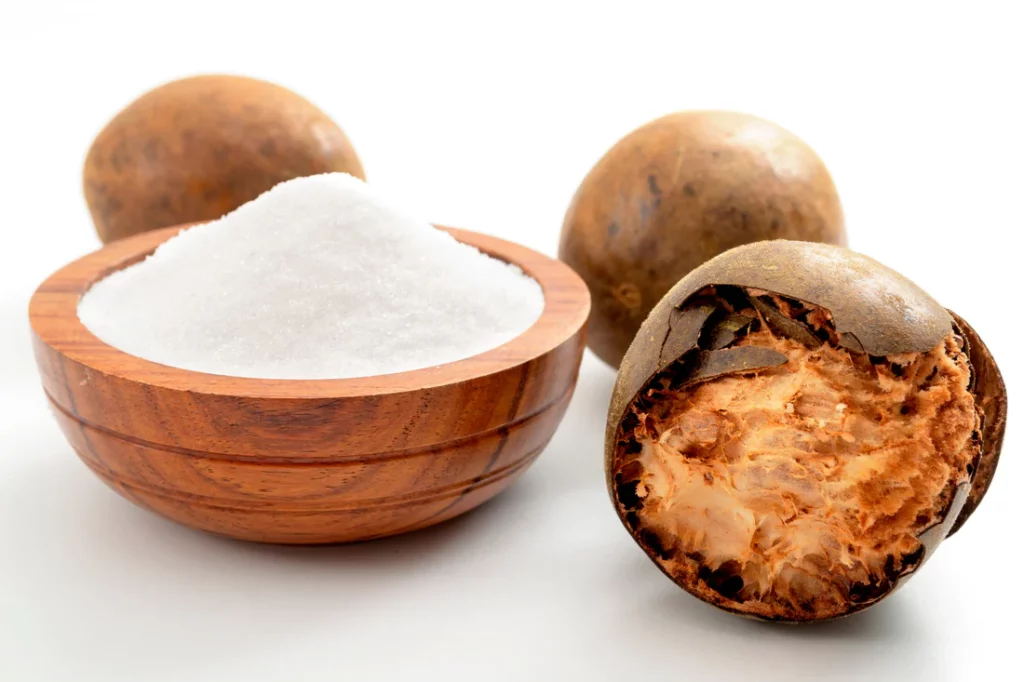Monk fruit – perfect alternative to sugar & artificial sweeteners.

What is Monk fruit ?
Monk fruit, also known as luo han guo, is a small round fruit native to Southern China and Northern Thailand. It has been used for centuries in Traditional Chinese Medicine as a natural sweetener and to treat a variety of diseases.
Monk fruit is recognised as a natural sweetener alternative to sugar and artificial sweeteners. This is because monk fruit extract contains compounds called mogrosides, which are intensely sweet but have no calories.
Monk fruit sweetener can be found in various forms, including powdered, granulated, and liquid, and is commonly used as a sugar substitute in beverages, baked goods, and other recipes.


Benefits of eating Monk fruit
Low calorie and low glycemic index: Monk fruit sweetener is low in calories and has a low glycemic index, it does not cause a rapid spike in blood sugar levels. This makes it a suitable alternative to sugar for people with diabetes or those looking to reduce their calorie intake.
Antioxidant properties: Monk fruit contains natural antioxidants, also vitamin C, which help protect against cell damage caused by free radicals.
Anti-inflammatory properties: monk fruit extract has anti-inflammatory properties, which help to reduce inflammation in the body and potentially prevent chronic diseases such as heart disease, diabetes, and cancer.
Potential cancer-fighting properties: Some research suggests that the mogrosides found in monk fruit may have anti-cancer properties, potentially helping to prevent the growth and spread of cancer cells.
May aid in weight management: since monk fruit sweetener is low in calories and does not cause a rapid spike in blood sugar levels, it is helpful in managing weight and reducing the risk of obesity.


Nutrition In Monk fruit
Nutrition of monk fruit sweetener per 100 grams:
Calories: 0
Carbohydrates: 4 grams
Sugars: 0 grams
Fiber: 4 grams
Protein: 0 grams
Fat: 0 grams
Side – effects of eating Monk fruit
Consuming excessive amounts of monk fruit may cause certain side effects, including:
Digestive issues: Some people may experience digestive symptoms such as bloating, gas, if they consume large amounts of monk fruit sweetener. This is because monk fruit sweetener contains natural fibers that can be difficult for some people to digest.
Allergic reactions: some people may have an allergic reaction to monk fruit. Symptoms may include itching, hives, and difficulty breathing.
Interference with medications: Monk fruit may interact with certain medications, particularly those that are metabolized by the liver. If you are taking any medications, it’s important to talk to your healthcare provider before consuming monk fruit or monk fruit sweetener.
Lack of nutrient density: Monk fruit sweetener does not provide significant amounts of vitamins or minerals, so relying solely on it for sweetening may result in a nutrient-poor diet.
It’s important to check the ingredient list and consume monk fruit sweeteners in moderation.







